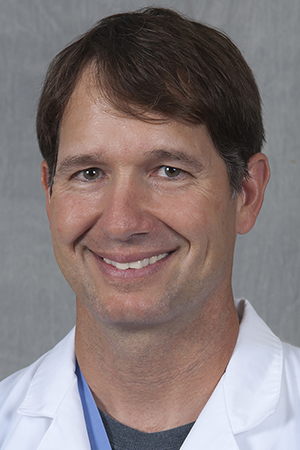Q: What is suprascapular nerve entrapment, and if I have it, can I continue to play sports?
A: Suprascapular nerve entrapment is a rare condition that can cause pain along the back of your shoulder blade into your shoulder. The suprascapular nerve (SSN) is a sensory and motor (mixed) nerve that comes out of the brachial plexus nerve bundle in your neck and helps control two of the muscles that are part of your rotator cuff muscle group. These muscles help perform and stabilize your arm movements at your shoulder joint.
Your SSN can be injured by some kind of trauma. Athletes who perform overhead motions in their sport, such as volleyball, tennis or weightlifting, and sports that involve throwing can cause trauma to their SSN. Fractures of the collarbone or shoulder blade or dislocation of the shoulder can also cause SSN. Compression of the nerve may also be caused by a tumor or ganglion cysts, a thickened or calcified suprascapular ligament and congenital structural changes of the shoulder. Regardless of the cause, SSN can result in pain and/or weakness.
To accurately diagnosis SSN, you may undergo several tests, such as nerve conduction study, MRI, fluoroscopic ultrasound and X-ray.
Treatment for SSN usually starts conservatively with physical therapy to improve stabilization, flexibility and mobilization in your shoulder. Icing the affected area can reduce inflammation and relieve pain. Heat treatments can be effective before stretching and strengthening activities. A nerve block (an injection of steroids and numbing medicine) can also help with pain.
If your symptoms last more than six months and you're seeing improvement, surgery to release the suprascapular nerve may be warranted. This is an arthroscopic procedure that decompresses the nerve. Generally, patients head home the same day of the surgery and start physical therapy the day after their surgery. After a period of healing and therapy, you should be able to return to your favorite sports and enjoy them once again.
- John Dorizas, M.D., UT Erlanger Orthopaedics; Chattanooga Hamilton County Medical Society member

